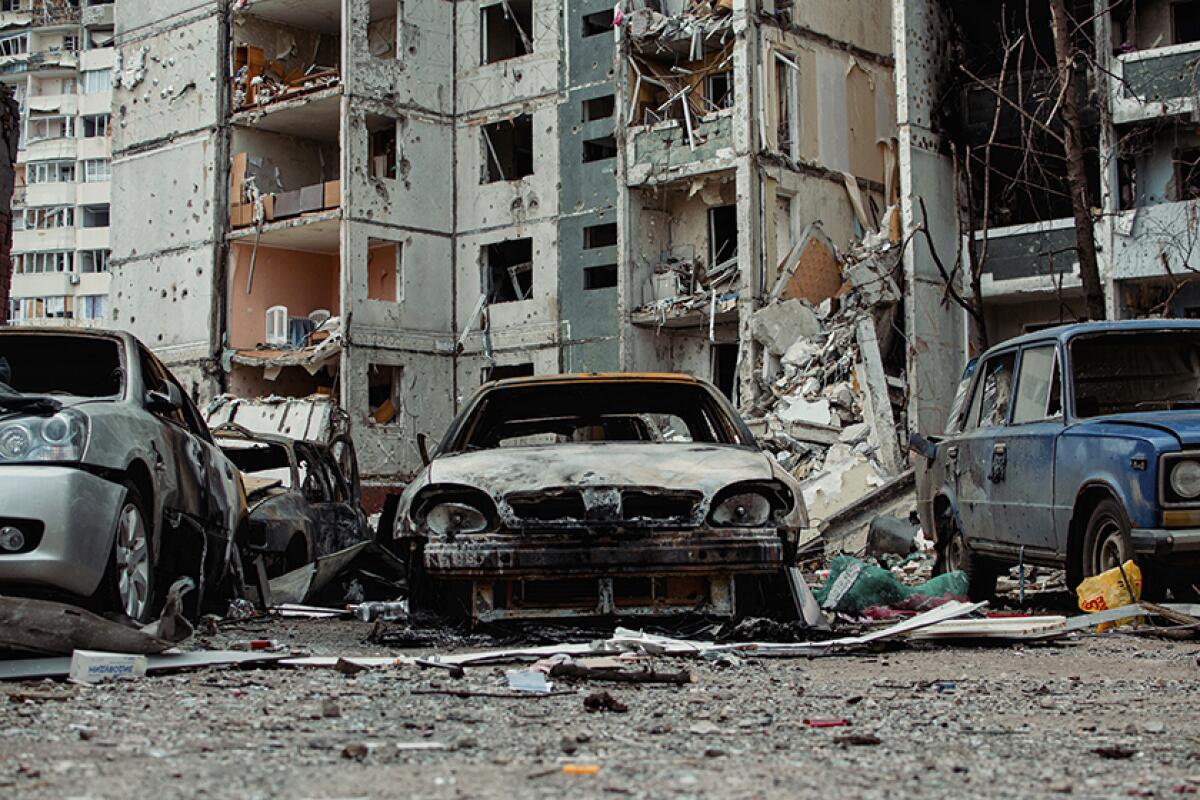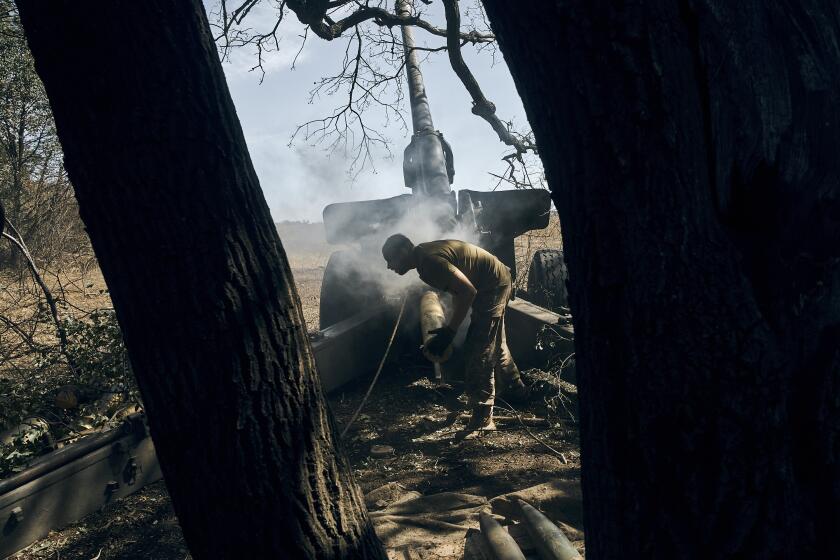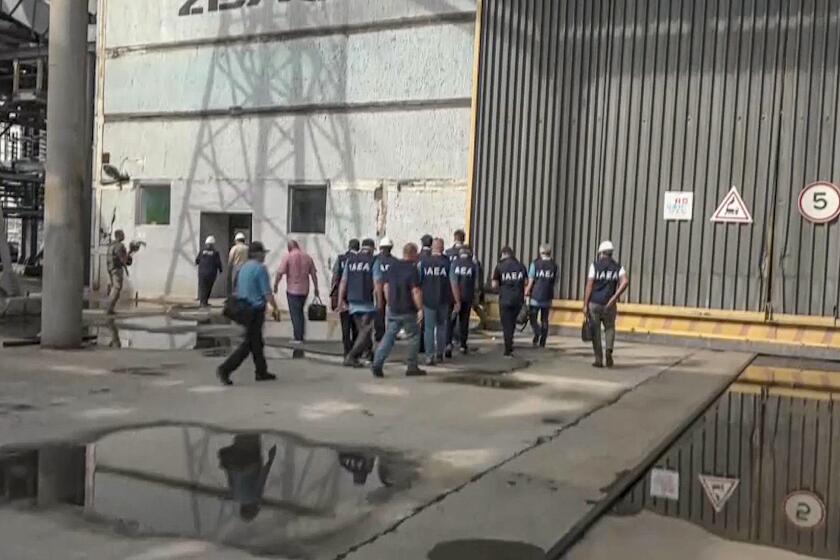In need of materiel, Russia turns to North Korea for rockets and artillery, U.S. says

- Share via
WASHINGTON — The Russian Ministry of Defense is in the process of purchasing millions of rockets and artillery shells from North Korea for its ongoing war in Ukraine, according to a newly downgraded U.S. intelligence finding.
A U.S. official, who spoke on the condition of anonymity to discuss the intelligence determination, said Monday that the fact Russia is turning to the isolated state of North Korea demonstrates that “the Russian military continues to suffer from severe supply shortages in Ukraine, due in part to export controls and sanctions.”
U.S. intelligence officials believe that the Russians could look to purchase additional North Korean military equipment in the future. The intelligence finding was first reported by the New York Times.
The U.S. official did not detail how much weaponry Russia intends to purchase from North Korea.
The finding comes after the Biden administration recently confirmed that the Russian military in August took delivery of Iranian-manufactured drones for use on the battlefield in Ukraine.
The White House said last week that Russia has faced technical problems with Iranian-made drones acquired from Tehran in August for use in its war with Ukraine.
Russian energy company Gazprom has said a suspension of gas supplies heading west through the Nord Stream 1 pipeline would be extended indefinitely.
Russia picked up Mohajer-6 and Shahed-series unmanned aerial vehicles over several days last month as part of what the Biden administration says is a likely plan to acquire hundreds of Iranian UAVs for use in Ukraine.
North Korea has sought to tighten relations with Russia as much of Europe and the West has pulled away, blaming the U.S. for the Ukraine crisis and citing the West’s “hegemonic policy” as justification for military action by Russia in Ukraine to protect itself.
The North Koreans have hinted interest in sending construction workers to help rebuild Russian-occupied territories in Ukraine’s east.
North Korea’s ambassador to Moscow recently met with envoys from two Russia-backed separatist territories in the Donbas region of Ukraine and expressed optimism about cooperation in the “field of labor migration,” citing his country’s easing pandemic border controls.
Inspectors from the International Atomic Energy Agency braved artillery blasts to reach the Zaporizhzhia nuclear plant on a safeguarding mission.
In July, North Korea became the only nation aside from Russia and Syria to recognize the independence of the territories, Donetsk and Luhansk, further aligning with Russia over the conflict in Ukraine.
The North’s arms export to Russia would be a violation of United Nations resolutions that ban Pyongyang from exporting to or importing weapons from other countries.
There have been suspicions that China and Russia haven’t fully enforced U.N. sanctions on North Korea, complicating a U.S.-led attempt to deprive North Korea of its nuclear weapons.
The U.S. has frequently downgraded and unveiled intelligence findings over the course of the grinding war in Ukraine to highlight plans for Russian misinformation operations or to throw attention on Moscow’s difficulties in prosecuting the war.
Start your day right
Sign up for Essential California for the L.A. Times biggest news, features and recommendations in your inbox six days a week.
You may occasionally receive promotional content from the Los Angeles Times.
Russian President Vladimir Putin and Kim have recently exchanged letters in which they called for “comprehensive” and “strategic and tactical” cooperation between the countries. Moscow has issued statements condemning the revival of large-scale military exercises between the U.S. and South Korea this year, which North Korea views as an invasion rehearsal.
Russia, along with China, has called for the easing of U.N. sanctions imposed on North Korea over its nuclear and missile tests. Both countries are members of the U.N. Security Council, which has approved a total of 11 rounds of sanctions on the North since 2006. In May, Russia and China vetoed a U.S.-led bid to impose new economic sanctions on North Korea over its high-profile missile tests this year.
More to Read
Sign up for Essential California
The most important California stories and recommendations in your inbox every morning.
You may occasionally receive promotional content from the Los Angeles Times.











